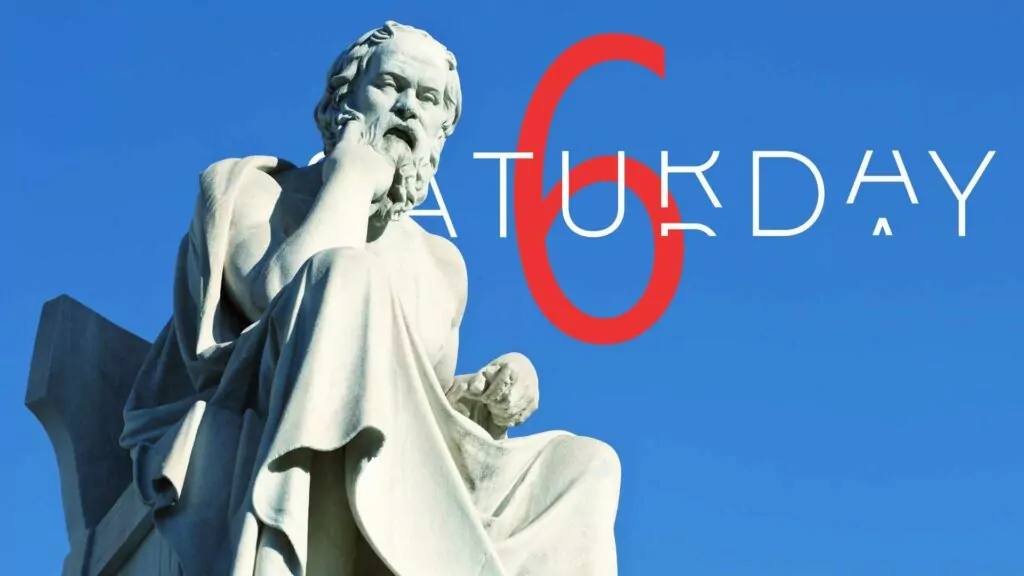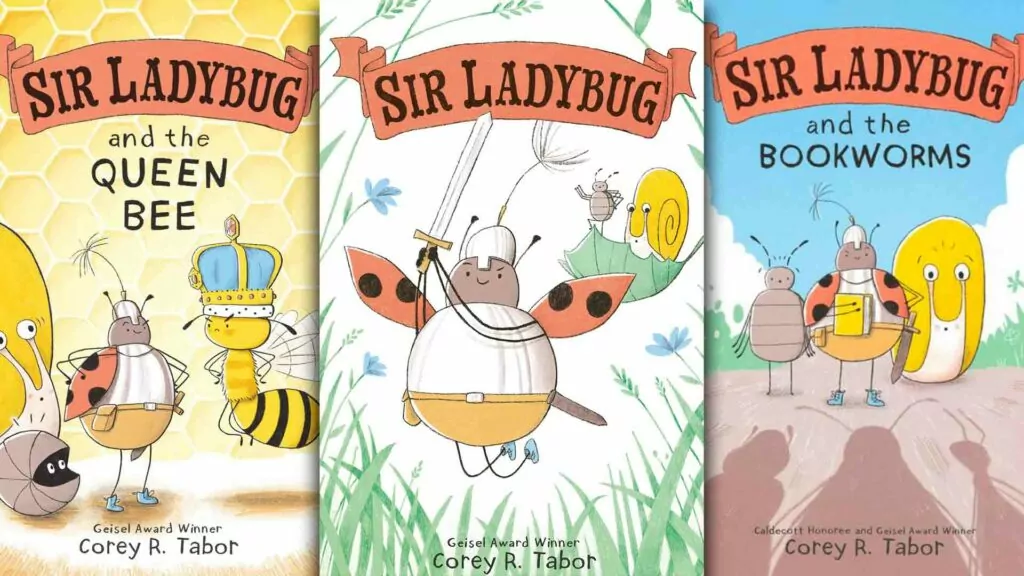Don’t overlook the blessings of today
Our children are actually wealthier than the very richest of 100 years ago
*****
You stir in your bed as the strains of an orchestra tickle at the edge of your still sleeping consciousness. The volume increases little by little, and you wake up in your warm cozy bed. You stick your toes out of bed onto the floor: even though it’s January, it’s warm and pleasant inside your bedroom, as the furnace has been programmed by your smart thermostat to warm the house fifteen minutes before you need to get up.
You share the bathroom upstairs with your sister, but she won’t be up for another half hour, so you turn on the tap to your preferred setting, and warm water instantly gushes out: you luxuriate in the shower an extra few minutes as you think about the day ahead.
Your mom has put out a delicious breakfast: bacon and eggs on toast, with sliced oranges and a cup of hot tea, just the way you like it. Dad reads the morning devotions, and leads your family in prayer; then you’re off to take on the challenges of a day at work. You drive yourself in the car your parents sold you for much less than it was worth: it’s been sitting in the garage, not outside in the cold, so you don’t even need to scrape frost off the windshield.
You’re new at your job, but the work is interesting and challenging, and your co-workers are mostly kind. The office is always kept at the perfect temperature for working, and the company provides snacks and gourmet coffee for your morning and afternoon breaks: they hope to make the work environment as comfortable as possible, because paying well is not enough to keep associates engaged in their work; people also need to feel appreciated and well cared for!
When lunch hour arrives, you make your way to the company gym for a work out – after a few hours of mental toil, it feels so good to put your body through some physical tests! After a quick shower, you’re back at your desk at 1 pm to continue your tasks through the end of the work day at 5:00. It was a productive day, and you feel good about what you’ve accomplished.
You make your way home, stopping at the sports store to pick up a hockey stick for tonight’s game. At $250, it’s a bit more than you usually spend, but you’ve been saving up for quite a while and it’s time to treat yourself a little bit – and maybe it will help solve your goal scoring drought!
After the game, you relax with your friends in the dressing room, limiting yourself to one beer so you can feel sharp in the morning, but enjoying the camaraderie and fun with your teammates. Home at a decent hour, you chat with your parents before bed time, check the football scores on your iPhone, and head upstairs for a good night’s sleep. Then before you know it, the music starts again…
Life in the modern world
Most of our readers could relate to some of what’s written above: a hardly unusual day for a modern citizen of the western world (although this fictional teenager will be adding many responsibilities in the coming years if he or she is blessed with a spouse and family in due time!) But what you have just read, and, very likely, what you experienced today in your own daily routine, would be unimaginable luxury for 99% of the world’s population over the past 6,000 years.
Waking up in your own private bedroom and having access to running hot water? That would be a luxury reserved for only the wealthiest in centuries past.
Your usage might be limited to checking the weather and texting your friends, but that phone in your pocket has access to more information than the largest libraries of the ancient world.
What we consider a typical work week of 40 or 45 hours would be laughably brief for our grandparents and their parents. And the way our bosses pamper us? Our ancestors would be stunned…
100 years ago
Many of our readers have family trees with roots in the Netherlands: my own grandparents were born early in the 1900s, and so would have been in their twenties a century ago. Perhaps you only know your family members from this time frame as gloomy faces in faded black and white pictures: but they were of course real people with real struggles, joys and sorrows. If we transport ourselves back in time one hundred years, to the Netherlands of the 1920s, we might be shocked at living conditions.
As in most of the world, the infant mortality rate in Holland was very high: it was not uncommon for a couple to bury two or three children before they had reached their teenage years. If you look at the genealogies of your family, you might see multiple children with the same name: if baby Geert died, the next male son might also be named Geert, so that the name of one’s relatives would live on in the family line.
Between 1900 and 1930, the population of Holland increased from 5 million to 8 million, a 60 percent increase in just 30 years. The Netherlands had stayed out of “The Great War” of 1914 to 1918, which we now know as the First World War, and so the country was spared the devastation that swept over other European countries. During that same time frame, average life expectancy in the nation increased from around fifty to around sixty. It was not at all uncommon for adults to die much earlier than today: with less modern medicine and antibiotics, some diseases that would be relatively minor today would be fatal a hundred years ago.
Despite the Netherlands status as the sixth wealthiest country in the world in the 1920’s, the average working family lived without most of the comforts that we consider commonplace today. In the cities, electricity was starting to become more common as a source of light and power in homes, but indoor plumbing was still hit and miss. In the country and small towns, laborers lived in very humble conditions; sometimes even in sod huts (shelters built of turf, or dug into a hillside), with a fireplace burning dried peat – compressed moss – for heating and cooking.
Of course, not everyone in the 1920s lived in such humble circumstances, but even the middle class made do with far less than we would consider a minimum standard. For clothing, most children would have one set of clothes and shoes for the weekdays, and a special “Sunday” dress or suit, often worn with the same shoes. Absent the assistance of a washing machine and dryer, moms would wash all the households clothing by hand (or using a manually powered washing machine), and laundry would be hung out to dry on the clothesline. And in inclement weather, it would be strung up across the attic.
The 1950s
Perhaps 100 years ago seems far removed – how about we move forward a generation and make a comparison with the world of your parents and grandparents in the 1950s?
Everything in the world had changed in 1939 when Nazi Germany invaded Poland, igniting the Second World War. Unlike the first “Great War,” this time the Netherlands could not stay neutral, as German forces swept through the low countries in the spring of 1940, conquering their neighbor in just a few days. The Nazis treated the Dutch reasonably well at first, but soon began a campaign to eradicate the Jewish population, and to bring food, manpower, and raw material back to Germany for the war machine to continue its fight. The last months of the war, known as the “Hunger Winter,” was the pinnacle of suffering for the Dutch population, as the last gasps of the German forces left little food available, and left behind much trauma and despair.
After the war, many Europeans wanted to get out of the Old World, away from the new dangers of Communism, and towards the freedom, opportunity, and prosperity of western countries. The USA, Canada, Australia, and South Africa opened their doors to immigrants, especially those with a background in agriculture who were willing to work in the farms and fields.
Perhaps you’ve heard stories from your parents or grandparents about the difficult early years in their new homeland, learning a new language, and often living in very difficult circumstances.
While every family’s story is different, you can imagine your family’s own history. You wake up and it’s so cold! As usual, your brother has grabbed most of the blankets, and the brick you took out of the fireplace and wrapped in rags to warm your bed last night has now lost its warmth. It’s your chore to start the fire this morning, so you flick on the single light switch and get dressed in the cold, teeth chattering. The house only has one bathroom, and it’s occupied – you wonder who could be awake before you? Off you head to the kitchen to stoke up the fire, and when you peek inside the wood stove, there are a few embers still glowing. You’re able to get the fire going again and soon the room begins to warm up.
Next, you head outside for your morning chores: Dad has been hired as a farm hand for the Canadian farmer who sponsored your family, and this means the whole clan has to pitch in! The first milking is at 4:30 a.m., and Dad is already out there getting the milking pails ready for you and your brother. After a few hours of hard work in the cold, you head back inside for the breakfast that Mom has prepared. Dad reads the Bible, and then you and your siblings head off to the road to wait for a ride from the neighbors who will take you to school. You’re all crammed in the old four-door Ford; with no seatbelts required, it doesn’t really matter how many are in the back seat!
Dad has already told you that ninth grade will be your last year of schooling: you’re going to need to work full time to help the family out! If you want more education than that, you might be able to go to night school, but your parents don’t really think that is necessary. Your older sister is already working at the shoe factory down the road; she gives all her wages to Dad and Mom, and they give her an allowance in return. This will be the way it is until you leave the parental home!
When you get home from school, there is more work around the farm needing to be done. Dad is often working late nights, especially during the harvest, and you are expected to pitch in every afternoon, and often after supper as well.
Sunday is the day of rest, but the cows still need to be milked, and chores have to be done! Your church is a 45-minute drive away, but there’s no way your parents are not taking the whole family to both morning and evening services. Sundays are a wonderful time to connect with fellow immigrants, to socialize, to compare notes about work opportunities, to marvel at the blessings the Lord has given to your community. While life is not easy, there is so much more opportunity in Canada than there was for you in Holland, and you are grateful to God for His provision and goodness. Despite the hard conditions, you know the Lord is looking after His people, and that in all circumstances, you may lean on Him for all you need for body and soul.
Reflection
While your grandparents may look back with fondness on their early years in North America, and might even miss some of the struggles they had to go through, there is no doubt that life was more difficult than it is today. In 2025, we enjoy and appreciate Christian schools in most of our communities; we have many post-secondary opportunities for our youth; we have incredible economic and employment options in our free market nations, and we are free to worship our God without persecution.
We are collectively the beneficiaries of the sacrifices made by the previous generations in working hard for their families and for their communities. The Lord has been so good to us! We do not need to feel guilty about these blessings, but we should use them wisely for the good of our neighbors, and to the glory of our great God....































